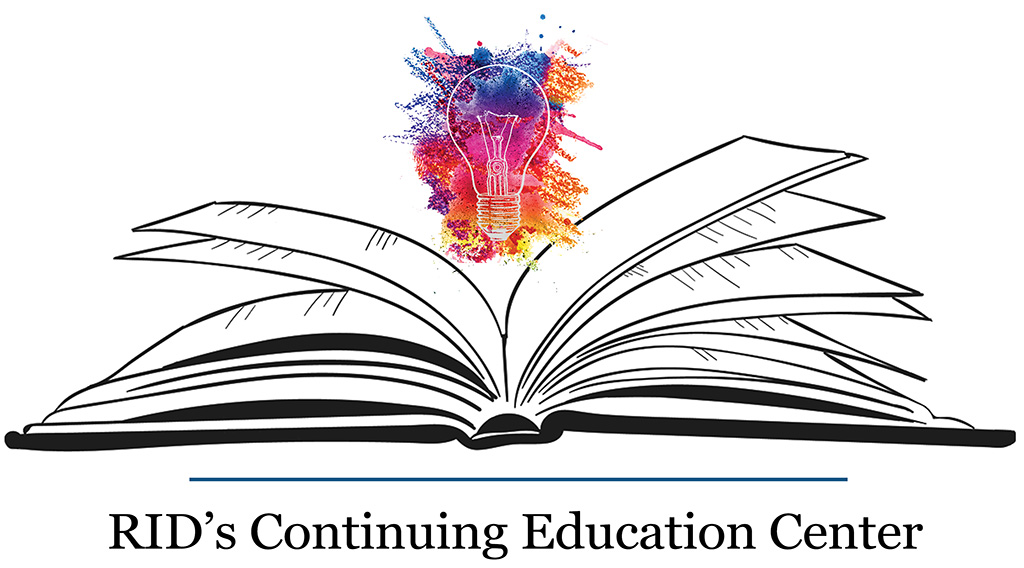
The Magic of STEM
This webinar will be recorded for asynchronous viewing, however it must be viewed and completed no later than December 15, 2024 to earn credit.
This Professional Studies program is offered for 0.2 PS CEUs at the little/none Content Knowledge Level. RID HQ is an approved RID CMP Sponsor for continuing education activities.
In third grade, we dug through the soil in search of earthworms and watched caterpillars morph into butterflies. By 12th grade, we were reading from textbooks and connecting scientific concepts with big words. Over the years, we have transitioned from being tactile and creative to passive and regimented. As a result, science has lost its vitality within many of us, and it has carried over in our interpretations. This workshop will provide a series of hands-on, interpreter skill-building activities focusing on: 1. developing scientific thinking skills for comprehension of new science content; 2. applying these skills for conceptualization of content; 3. choosing appropriate signs and expanding the ASL science vocabulary repertoire; 4. delivering science concepts in an engaging, accurate, and relatable manner. The presenters, two deaf scientists, will also discuss how several elements of education and language may have helped or hindered their journey to becoming scientists. Along this vein, we will discuss how we, as educators and interpreters, can work together to re-frame inner bias toward science, and re-breathe tactility and creativity into science through interpreting. The goal of this workshop is to cultivate confidence in understanding, developing, and interpreting engaging science-related topics through creative and collaborative language play.
Upon completion of this workshop, participants will be able to:
1. Be able to list at least 10 new science signs,
2. Be able to analyze and decipher the meaning and context of science signs,
3. Be able to discuss the process of interpreting science concepts in an engaging, accurate, and relatable manner,
4. Practice interpreting various science topics in ASL for effective instructional delivery and communication of science content, &
5. List several sources of science in ASL

Barbara Spiecker
Barbara Spiecker, Ph.D. (she/her)
Barbara Spiecker (she, her, hers) is a deaf marine ecologist at University of New Hampshire who uses mathematical and statistical tools, coupled with experiments and field observations, to answer questions related to responses of marine communities to climate change and monitoring and management of marine habitats. She is a co-founder of a non-profit, Atomic Hands that focuses on making science, technology, engineering, and mathematics (STEM) engaging through American Sign Language (ASL). We create videos covering varying STEM topics, give presentations and training nationally and internationally on how to deliver STEM topics in ASL, and offer ASL-English translation services for anything STEM related. Barbara has also worked with state- and nationally-funded projects on developing STEM signs in ASL and state education departments to translate English-based standardized tests in ASL. She has a Ph.D. in Integrative Biology from Oregon State University, M.S. in Marine Biology from Northeastern University, and a B.S. in Biology from Rochester Institute of Technology.
Alicia Wooten
Alicia Wooten
Alicia Wooten (she, her, hers) is a deaf immunologist and biology professor at Gallaudet University. Her expertise is in lung biology, infectious diseases, and the immune system. She has done research on HIV, autoimmune diseases, and Streptococcus pneumoniae, a bacterium that causes pneumonia. She is a co-founder of a non-profit, Atomic Hands that focuses on making science, technology, engineering, and mathematics (STEM) engaging through American Sign Language (ASL). We create videos covering varying STEM topics, give presentations and training nationally and internationally on how to deliver STEM topics in ASL, and offer ASL-English translation services for anything STEM related. Alicia has worked within public health efforts such as the COVID-19 pandemic and developing STEM-specific educational resources in ASL. She has a Ph.D in Molecular and Translational Medicine at Boston University, and a B.S. in Biomedical Sciences from Rochester Institute of Technology.
